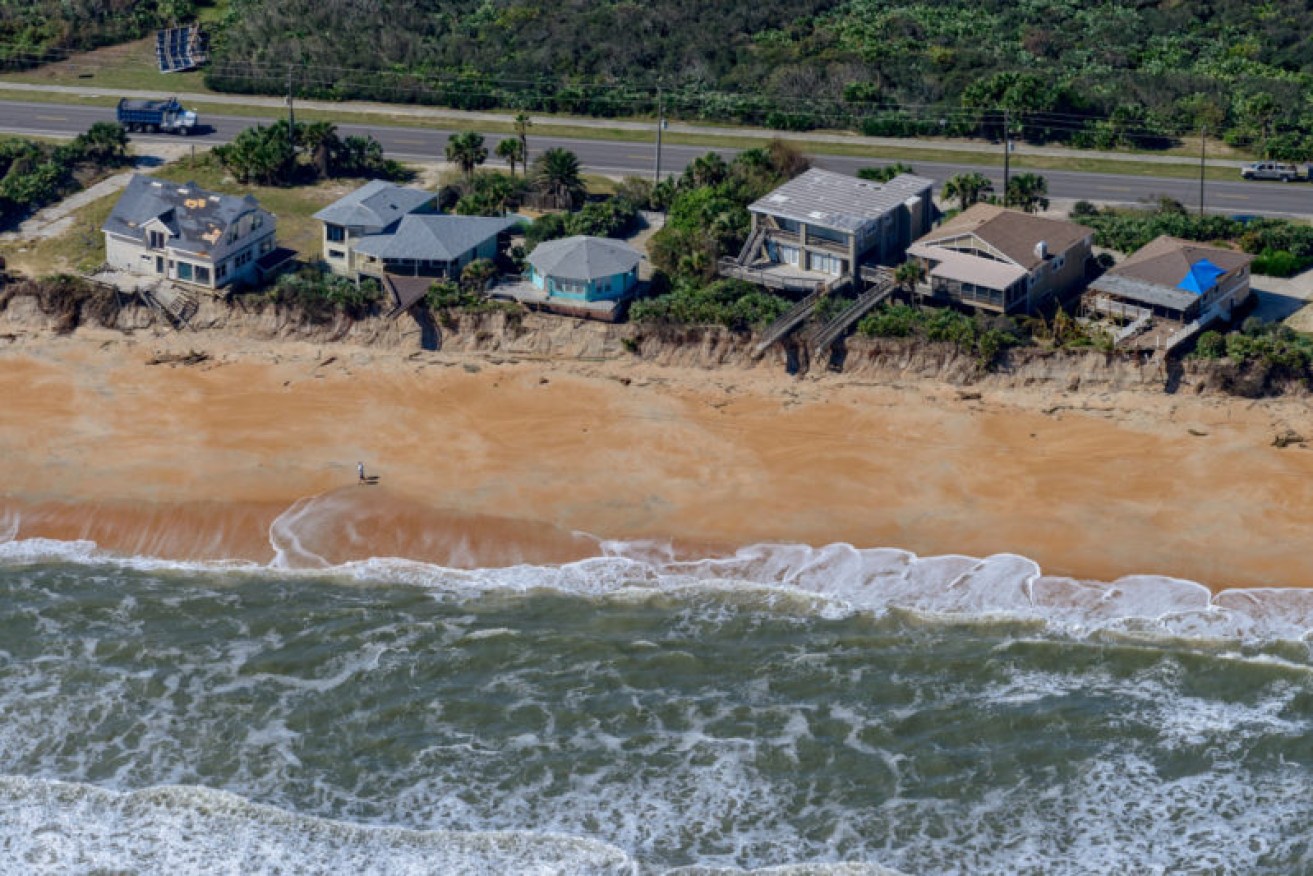Banks at even greater risk from climate change than insurers, says actuaries’ report


Banks will have to carry the can long term for climate change. Photo: Getty
Australia’s banking system is more at risk from climate change than the insurance sector, Australia’s Actuaries Institute has warned.
Following the release of its report, Australian Actuaries Climate Index, one of its authors, actuary with consultancy Finity, Tim Andrews, told The New Daily “the index shows an increase in very hot days, fewer cold nights and and extreme sea level rise events have increased significantly”.
The report had implications for a range of industrial areas as well as the finance sector, with banks most exposed.
“There is an increase in physical risk with banks exposed to more risk than insurers,” Mr Andrews said.
“Insurers have lots of exposure to physical risk but they are exposed through one-year policies, which can be adjusted the following year if things change. But banks are exposed to 25-year mortgage risk.
“With rising risks associated with climate change the value of properties could be negatively affected over that time, so you could argue banks carry more risk than insurers.”
The index here measures temperatures above the one per cent of hottest days of the year and found that since 2003 the number of days in this category jumped significantly above the average from 1981 to 2010.
Back in the summer of 2003 the index sat at 0.0509. By the summer of 2018-19 that figure had jumped to 0.7159, which means the likelihood of those super hot days had risen 14 times.
Over that time the number of dangerous sea level rise events grew by about six times, the Actuaries Climate Index showed. However the index found that there had been no significant rise in dangerous rainfall events or extremely windy weather.
Cost showing in premiums
“Insurance costs are already increasing in areas that have experienced significant flooding or inundation,” said Angie Zigomanis, property expert with BIS Oxford Economics.
“We are likely to see impacts in more areas in both property prices and insurance costs.
“Councils are faced with the prospect of either remediation (building protective walls and drains) or planned retreat (abandoning flood prone areas).”
Globally financiers worry
International financial opinion leaders have become increasingly aware of financial danger associated with climate change. At the World Economic Forum in January this year the the Network for Greening the Financial System (NGFS) released a report that showed climate concerns now trumped all other risks to the financial system.
Whereas in the past asset price collapses, conflicts and resulting forced migration most worried financiers, by 2019 the top three worries were all environmental and largely climate related.
NGFS said in its report that “concerns are no longer focused solely on the short-term impact of extreme weather events but rather the possible failure of environmental policy, as the consequences of climate inaction become ever clearer”.
Australia lags
However it appears Australian financial companies are still trying to coming to terms with the dangers of climate change. A spokeswoman for the Insurance Council of Australia said: “We have projects being considered at present to measure and then express… climate change in terms of frequency and intensity changes – but results are not available yet.”
Queensland insurer Suncorp is also still looking into the effects of climate change. A spokeswoman told The New Daily: “The focus of our engagement with state and federal governments is on risk reduction and resilience building, a topic we’ve been vocal about for several years.
“We are pushing for a national discussion about how to significantly enhance disaster resilience and mitigation. To assess medium and long-term risks, we will be conducting scenario analysis over the next year to better understand the actual and potential impacts of climate change on our business and community.”
The Australian Bankers Association did not reply to questions on how the industry was dealing with climate change.









